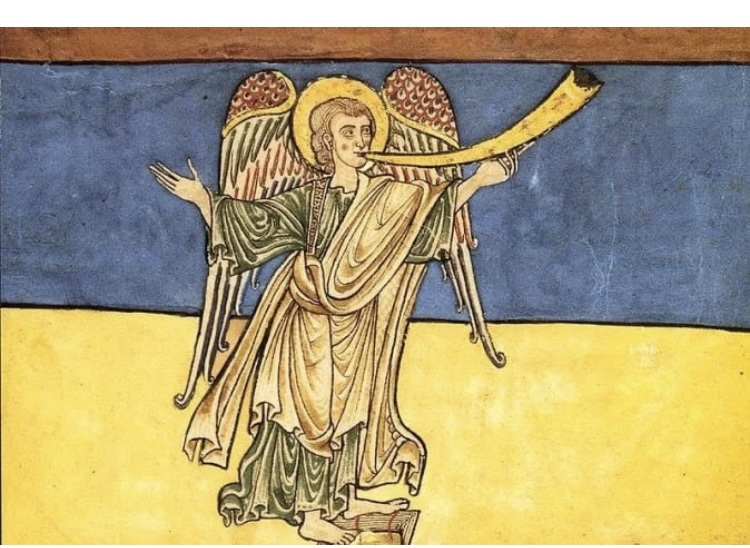
And they sang a new song, saying: “You are worthy to take the scroll and to open its seals, because you were slain, and with your blood you purchased for God persons from every tribe and language and people and nation.” (Apocalypse 5:9)
The angels lead the singing of the “new song” around the Throne of God. Several times, the “new song” is mentioned in the Apocalypse, together with many other “new” things — a new name, a new heaven and a new earth, the New Jerusalem. These “new” things are not simply more recent than what they replace but are different in quality as well. The “newness” is a description of their character and purity as well as their permanence. They will not be replaced or supplanted, much like the “new covenant-testament” established by Christ at the Last Supper.
The psalms frequently mention a “new song” as well — Psalms 33, 40, 96, 98, 144, 149. Again, the “new song” is an eschatological hymn, a song to be sung at the End of Days when God’s people are vindicated and God’s final triumph is celebrated. But what is the “old song” that the new one is being contrasted with? The “old song” — maybe, the “first song” is a better way to describe it–is the Song of Miriam and Moses that God’s people sang on the shore of the Red Sea after escaping from Egypt. This song that celebrates the Exodus is also a celebration of God’s victory and the vindication of his people; it is a dress rehearsal for the victory God will win over his cosmic enemies at the End of Days.
During the Middle Ages, it was common for rabbis to identify the “old-first song” as the song sung when King Solomon dedicated the Temple in Jerusalem and the “new song” being that which was sung when the Temple was rebuilt and rededicated after the people returned from exile in Babylon. This can also be understood as a hymn sung to celebrate God’s deliverance of his people from their enemies and his re-establishment of them in the Promised Land.
